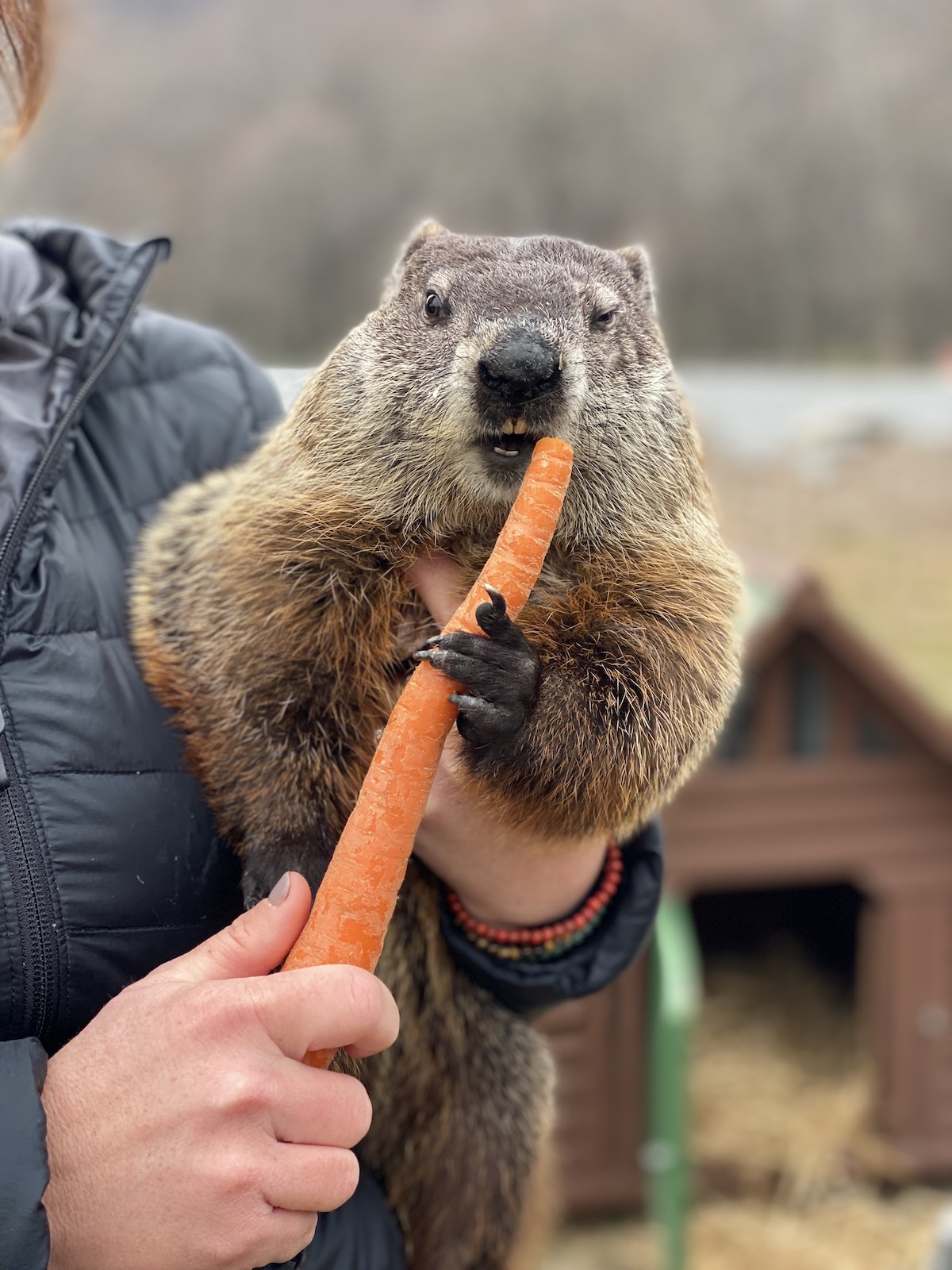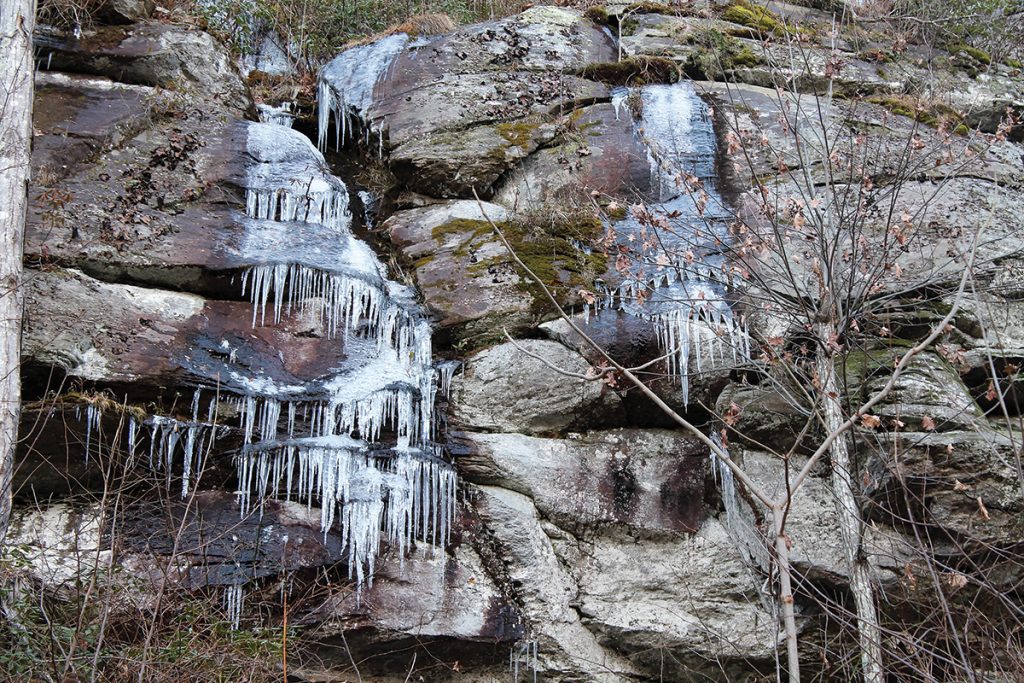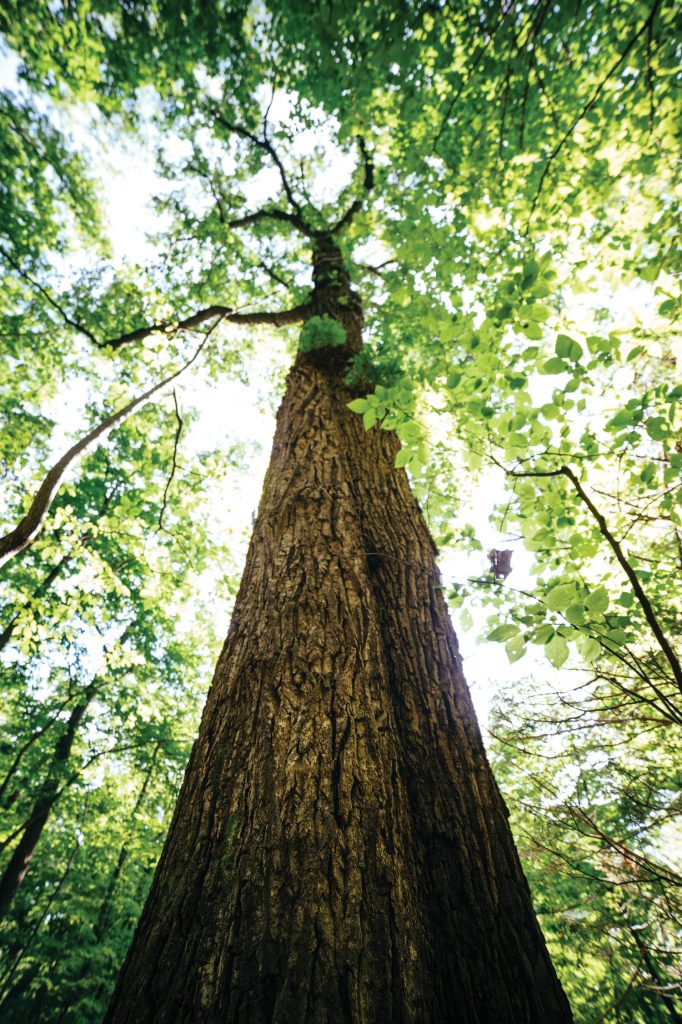
From grubs to grasses, find out everything black bears eat during an educational program at Edneyville Library.
Contrary to popular belief, black bears don’t hibernate come wintertime. Instead, they enter an extreme state of inactivity called torpor. “Unlike hibernation,” says Joseph Hiatt, a park ranger at Chimney Rock State Park, “torpor lasts for short periods — sometimes just through the night or day depending upon weather and the feeding pattern of the animal.” Translation: Torpor is kind of like the food-induced coma we humans experience after Thanksgiving dinner. Except, rather than sweet potato casserole and mac ‘n cheese, the black bear feasts on “acorns, berries, carrion, corn, fish, frogs, fruits, grasses, grubs, honey, insects, larvae, leaves, nuts, reptiles, roots, squawroot, seeds, small mammals, soybeans, and wheat.” (Whew — that’s a long menu.) With hopes of sharing a few more facts about ursines, Chimney Rock State Park will host “Bear Basics” at Edneyville Library on Tuesday, Jan. 23. Participants can expect answers to common questions like: Where do black bears live, how much do black bears weigh, and will they attack? The answers, respectively: most of the North American continent; 100 to 150 pounds for females and 150 to 180 pounds for males; and no, not usually. “Black bears are typically shy and non-aggressive,” says Hiatt. Still, he adds, “it’s good to be familiar with ways to avoid and decrease bear and human interactions.”
“Bear Basics” happens Tuesday, Jan. 23, 3:30-4:30pm at Edneyville Library (2 Firehouse Rd., Hendersonville). Free. See hendersoncountync.gov/library for more information.



